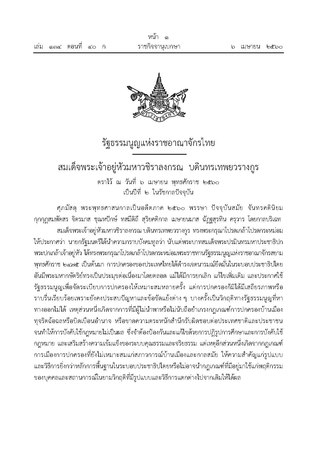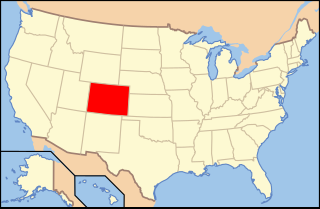
A popular initiative is a form of direct democracy by which a petition meeting certain hurdles can force a legal procedure on a proposition. The hurdles the petition has to meet vary between countries, typically signatures by a certain number of registered voters.
A constitutional amendment is a modification of the constitution of a polity, organization or other type of entity. Amendments are often interwoven into the relevant sections of an existing constitution, directly altering the text. Conversely, they can be appended to the constitution as supplemental additions, thus changing the frame of government without altering the existing text of the document.

A constituent assembly is a body assembled for the purpose of drafting or revising a constitution. Members of a constituent assembly may be elected by popular vote, drawn by sortition, appointed, or some combination of these methods. Assemblies are typically considered distinct from a regular legislature, although members of the legislature may compose a significant number or all of its members. As the fundamental document constituting a state, a constitution cannot normally be modified or amended by the state's normal legislative procedures in some jurisdictions; instead a constitutional convention or a constituent assembly, the rules for which are normally laid down in the constitution, must be set up. A constituent assembly is usually set up for its specific purpose, which it carries out in a relatively short time, after which the assembly is dissolved. A constituent assembly is a form of representative democracy.

The Constitution of the Republic of Lithuania defines the legal foundation for all laws passed in the Republic of Lithuania. The first constitution of the contemporary republic was enacted on 1 August 1922. The current constitution was adopted in a referendum on 25 October 1992.

Even before attaining its independence from Spain, Cuba had several constitutions either proposed or adopted by insurgents as governing documents for territory they controlled during their war against Spain. Cuba has had several constitutions since winning its independence. The first constitution since the Cuban Revolution was drafted in 1976 and has since been amended. In 2018, Cuba became engaged in a major revision of its constitution. The current constitution was then enacted in 2019.

The Constitution of the Bolivarian Republic of Venezuela is the current and twenty-sixth constitution of Venezuela. It was drafted in mid-1999 by a constituent assembly that had been created by popular referendum. Adopted in December 1999, it replaced the 1961 Constitution, the longest-serving in Venezuelan history. It was primarily promoted by then President of Venezuela Hugo Chávez and thereafter received strong backing from diverse sectors, including figures involved in promulgating the 1961 constitution such as Luis Miquilena and Carlos Andrés Pérez. Chávez and his followers (chavistas) refer to the 1999 document as the "Constitución Bolivariana" because they assert that it is ideologically descended from the thinking and political philosophy of Simón Bolívar and Bolivarianism. Since the creation of the Constituent National Assembly in August 2017, the Bolivarian government has declared the 1999 constitution suspended until a new constitution is created.

The Constitution of the State of Tennessee defines the form, structure, activities, character, and fundamental rules of the U.S. State of Tennessee.

The Constitution of the Commonwealth of Virginia is the document that defines and limits the powers of the state government and the basic rights of the citizens of the Commonwealth of Virginia. Like all other state constitutions, it is supreme over Virginia's laws and acts of government, though it may be superseded by the United States Constitution and U.S. federal law as per the Supremacy Clause.

The Constitution of the State of Minnesota was initially approved by the residents of Minnesota Territory in a special election held on October 13, 1857, and was ratified by the United States Senate on May 11, 1858, marking the admittance of Minnesota to the Union. Nearly 120 amendments have been approved, with perhaps the most significant being a reorganization in 1974 to simplify the document, making it easier for modern readers to comprehend and reducing the extensive verbiage. It is believed that the constitution was amended twice prior to ratification.

The Constitution of the State of Florida is the document that establishes and describes the powers, duties, structure, and function of the government of the U.S. state of Florida, and establishes the basic law of the state. The current Constitution of Florida was ratified on November 5, 1968.

The Constitution of the Republic of Belarus is the ultimate law of Belarus. The Constitution is composed of a preamble and nine sections divided into 146 articles.
The Constitution of the State of Wisconsin is the governing document of the U.S. State of Wisconsin. It establishes the structure and function of state government, describes the state boundaries, and declares the rights of state citizens. The Wisconsin Constitution was written at a constitutional convention held in Madison, Wisconsin, in December 1847 and approved by the citizens of Wisconsin Territory in a referendum held in March 1848. Wisconsin was admitted to the United States on May 29, 1848. Although it has been amended over a hundred times, the original constitution ratified in 1848 is still in use. This makes the Wisconsin Constitution the oldest U.S. state constitution outside of New England. Only Massachusetts, New Hampshire, Vermont, Maine, and Rhode Island use older constitutions.

The Constitution of the Kingdom of Thailand provides the basis for the rule of law in Thailand. Since the abolition of the absolute monarchy in 1932, Thailand has had 20 charters or constitutions, an average of one roughly every four years. Many changes followed military coups, reflecting the high degree of political instability in the country. After each successful coup, military regimes abrogated the existing constitution, generally without public consultation.

A constitutional referendum was held in France on 5 May 1946. Voters were asked whether they approved of a new draft Constitution proposed by the Constituent Assembly elected in 1945.

The Constitution of the State of Colorado is the foundation of the laws and government of the U.S. state of Colorado. The Colorado State Constitution was drafted on March 14, 1876; approved by Colorado voters on July 1, 1876; and took effect upon the statehood of Colorado on August 1, 1876. As of 2020, the constitution has been amended at least 166 times. The Constitution of Colorado derives its authority from the sovereignty of the people. As such, the people of Colorado reserved specific powers in governing Colorado directly; in addition to providing for voting for Governor, state legislators, and judges, the people of Colorado have reserved initiative of laws and referendum of laws enacted by the legislature to themselves, provided for recall of office holders, and limit tax increases beyond set amounts without explicit voter approval, and must explicitly approve any change to the constitution, often with a 55% majority. The Colorado state constitution is one of the longest in the United States.
The right of non-citizens to vote in the United States has historically been a contentious issue. Since 1997, the Illegal Immigration Reform and Immigrant Responsibility Act of 1996 has prohibited non-citizens from voting in federal elections, with the threat of fines, imprisonment, inadmissibility and deportation. Exempt from punishment is any noncitizen who, at the time of voting, had two natural or adoptive U.S. citizen parents, who began permanently living in the United States before turning 16 years old, and who reasonably believed that they were a citizen of the United States. At one point or another before 1926 40 states had non-citizens voting in elections. While federal law does not prohibit noncitizens from voting in state or local elections, no state has allowed noncitizens to vote in statewide elections since Arkansas became the last state to outlaw noncitizen voting in state elections in 1926. As of December 2022, at least thirteen local jurisdictions allow non-citizen voting, namely Winooski and Montpelier in Vermont, and eleven in Maryland near Washington, D.C. In 2023, D.C. itself started allowing local non-citizen voting. Additionally, the U.S. territories of American Samoa and the Northern Mariana Islands allow non-citizen US nationals to vote, a status granted to all persons born in American Samoa. All persons born in the Northern Mariana Islands automatically become US citizens at birth, as opposed to becoming US nationals at birth. Guam and Hawaiʻi, by contrast do not allow non-citizen US nationals to vote.

The Constitution of the Republic of the Union of Myanmar is the supreme law of Myanmar. Myanmar's first constitution adopted by constituent assembly was enacted for the Union of Burma in 1947. After the 1962 Burmese coup d'état, a second constitution was enacted in 1974. The country has been ruled by military juntas for most of its history.
A referendum is a direct vote in which an entire electorate is asked to either accept or reject a particular proposal. This article summarises referendum laws and practice in various countries.

The Republic of Haiti from 1859 to 1957 was an era in Haitian history plagued with political struggles, the period of American occupation and multiple coups and elections until the Duvalier dynasty seized control of the country in 1957.

Constitutional Assembly elections were held in Haiti on 19 October 1986. Voters elected 41 of the 61 seats, with the remaining 20 appointed by the National Council of Government (CNG). The CNG claimed that voter turnout was 9.2%, although it was widely reported to be under 5%. A total of 101 candidates contested the 41 seats, which were based on the country's arrondissements.
















